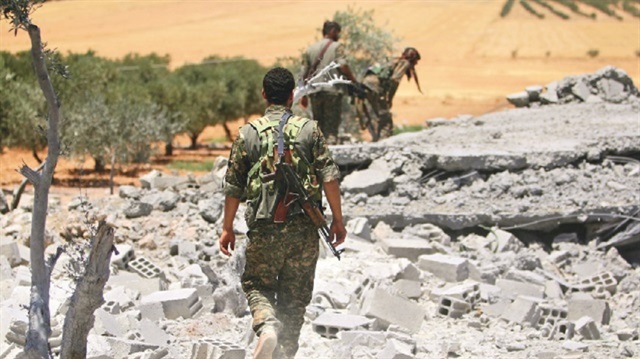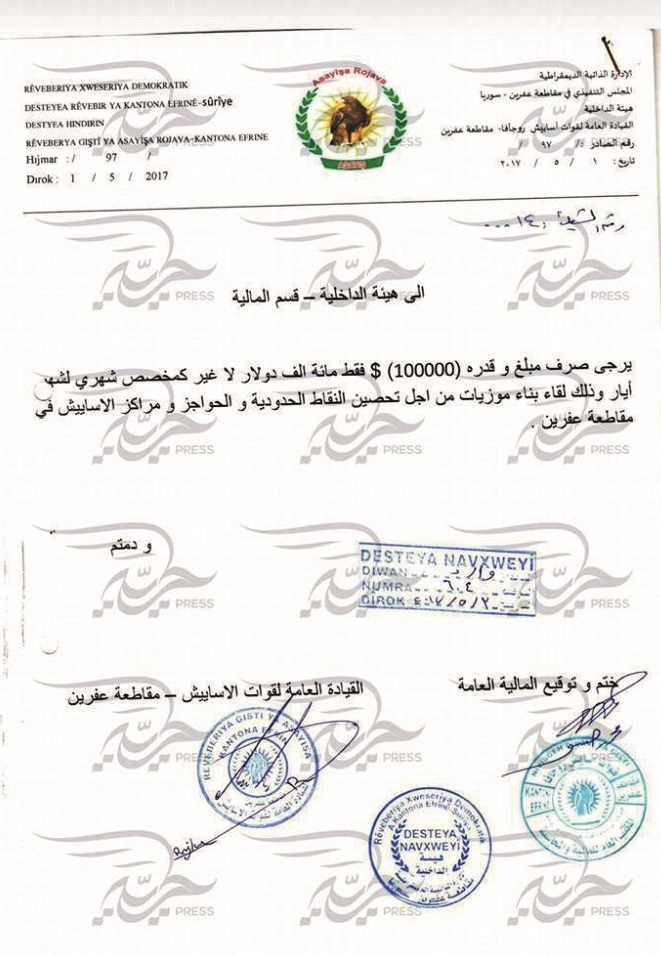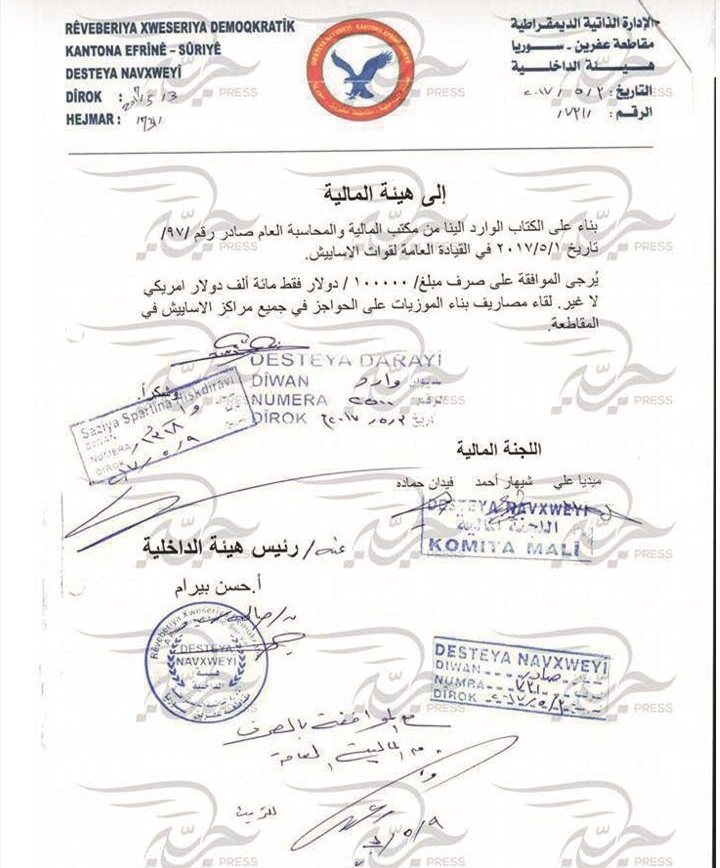
Documents acquired from PKK show that the terror group spent $4 million on tunnels built against the Turkish army and accumulated an annual revenue of $600 million from various crimes
Yeni Safak daily obtained documents which specify significant details of the Kurdistan Workers' Party (PKK) terror group’s five year-long Afrin occupation and unveils an annual revenue of over $600 million.
The documents show that most of the funds were allocated to terrorist training camps as well as senior PKK officials in Syria’s al-Hasakah and the terror group’s Qandil cadre in Iraq. The documents indicate that the PKK allotted a separate budget for underground tunnels reaching 150 kilometers in length along the Turkey-Syria border.
Abu Abdo, a Free Syrian Army (FSA) commander, stated that PKK terrorists worked for four years to construct tunnels in Shaykh al-Hadid, Jinderes, Rajo, Bulbul and Afrin.
On Jan. 20, 2018, Turkey launched Operation Olive Branch to remove YPG/PKK and Daesh terrorists from Syria’s northwestern Afrin. The PKK is listed as a terrorist organization by Turkey, the European Union and the United States. The PKK has been conducting armed violence in the southeastern part of Turkey since 1984.

The documents show that a special budget was allocated to senior PKK terrorists including Sipan Hamo, Mahmut Berhudan, Hogar and Chekdar Mamo. A portion of the funds generated from many types of crimes such as drug trafficking, human trafficking, fuel and cigarette smuggling and extortion are oftentimes embezzled from the PKK terror group by their own members.
The PKK terrorists used Syria's Afrin region as a major revenue base since 2015. The so-called Afrin canton controlled the funds of Manbij, Kobani, Ras al-Ayn and Qamishli.
The terror group obtains its steel, food supplies and logistic needs from regions controlled by the Assad regime, and acquires the cement it needs to construct terror tunnels from French industrial company Lafarge.

U.S.-backed terrorists from the PKK’s Syrian offshoot, the Democratic Union Party (PYD), have been using tunnels they built in the region with cement provided by French Lafarge’s factory in Manbij.
Lafarge, which maintains an operational cement factory in Manbij’s Sunaim region, was previously embroiled in a scandal after evidence detailing its dealings with Daesh terrorists was revealed.
Despite the ongoing civil war in Syria, Lafarge’s factory in Manbij has not halted cement production since 2011.
Syria’s so-called cantons, which are under PKK occupation, have been backed by the U.S and also Russian, German, British and French engineers.
A senior PKK terrorist code-named Gabar who was neutralized by the Turkish army in 2015 had confessed that millions of dollars were stolen during the Afrin evacuation, some of which was transported to Manbij via trucks.



